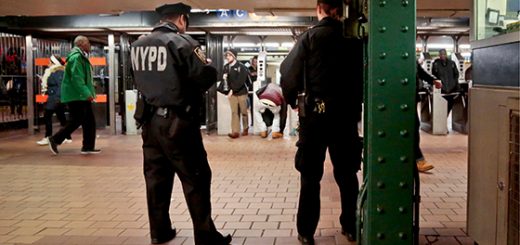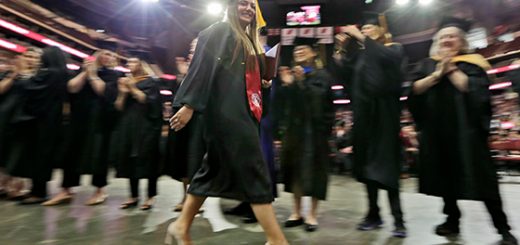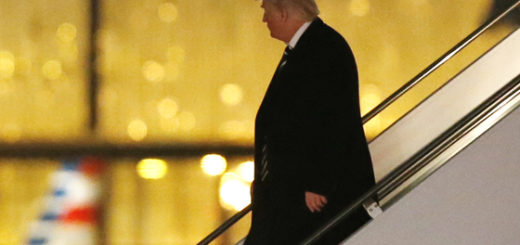Scrooge & redistribution.
 The subject of wealth redistribution is again in the news in connection with a presidential campaign involving Barack Obama. No doubt you remember the 2008 campaign encounter with Joe the Plumber in which candidate Obama said that it was good to “spread the wealth around.”
The subject of wealth redistribution is again in the news in connection with a presidential campaign involving Barack Obama. No doubt you remember the 2008 campaign encounter with Joe the Plumber in which candidate Obama said that it was good to “spread the wealth around.”
Listen to the broadcast of You Tell Me on KTBB AM 600, Friday, September 21, 2012.
Now, an audio recording has come to light of a speech that then Illinois State Senator Obama delivered to Loyola University on October 19, 1998. In that speech he said;
“I think the trick is how do structure government systems that pool resources and hence facilitate some redistribution? Because I actually believe in redistribution, at least at a certain level, to make sure that everybody’s got a shot.”
The money phrase in that quote is, “…make sure that everybody’s got a shot.” Because it’s not about everyone having a “shot.”
It’s about equality of results.
Far left liberals are not content with everyone having the same opportunity to go and make of their lives all that their talent, hard work, sacrifice and passion will earn them. Far left liberals believe that “a shot” means having essentially the same wealth, the same income and the same standing in society irrespective of talent, hard work, sacrifice and passion.
Against that belief, I offer the classic story “A Christmas Carol” by Charles Dickens.
You know the story. Ebeneezer Scrooge was a tight-fisted, cold-hearted, miserly old man who earned his income by making usurious loans to people of little means. He had plenty of customers.
The mid-19th century England of Charles Dickens was a society in which the equality of wealth and income that today’s liberals so fervently seek had been attained to a very high degree.
Scrooge made his living making what we now call “payday loans.” Scrooge’s loan customers borrowed from him at ruinous rates of interest in a day-to-day struggle for the very basics of life. Upwards of 60 percent of the population lived in poverty in the England of Ebeneezer Scrooge. Such poverty looked nothing like the poverty of 21st century America, in which the majority of those said to be under the poverty line have air conditioning, cable TV and cellular phones. The poverty chronicled by Charles Dickens was instead a dark, grinding, hopeless and utterly inescapable poverty against which no amount of natural talent or hard work could have any effect.
Kindly gentlemen in toppers and tails entreating old Scrooge to make “some slight provision for the poor” were outnumbered hundreds of times to one by people in ragged clothes who struggled to get enough to eat.
In 19th century England most people were born in to poverty, lived mean, hard, short lives in poverty and died in poverty.
Which is to say that to the extent that any society anywhere on Earth at any time in history has enjoyed widely-dispersed equality of income and wealth, that equality was an equality of unalloyed hopelessness and unremitting misery.
Yet there was a ray of sunshine in the poverty statistics of 19th century England during which “A Christmas Carol” is set. That shaft of light consisted of the fact that the poverty rate was down from the over 80 percent that prevailed on the day in 1789 when the United States Constitution took effect.
Though the United States was still a very young country in 1843, it was nonetheless already seeing the effect of the American experiment. That experiment consisted of a government constrained by enumerated powers and dedicated to the free exercise of economic opportunity by individuals irrespective of the circumstances of their birth.
England, the most powerful merchant nation on Earth at the time, began emulating some of what it saw happening in its former colonies and poverty began to recede.
The system of free enterprise born concurrently with the new American constitution would go on to make poverty the exception that it is today rather than the rule that it was in England and Europe throughout the entirety of their blood-soaked histories.
All of this to say that the economic equality that liberals say they want has been attained before and can be attained again.
But such equality is an equality of misery — the kind of misery that was appalling to Charles Dickens.








Paul,
Your comment that follows left out an important factor — CONTROL.
“It’s about equality of results. — Far left liberals believe that “a shot” means having essentially the same wealth, the same income and the same standing in society irrespective of talent, hard work, sacrifice and passion.”
The Left believe that THEY must be in dictatorial control of the society from cradle to grave because the masses are not smart enough to take care of themselves. The Left is consumed with self-importance and carries an unhealthy dose of egomania.
The fig leaf of “equality of results” is a deception that is intended to ensnare the masses with the expectation of “free stuff” (without having to work for it) in order to get their vote. The Left is not stupid. They know that “equality of result”, (same as “social justice”), is not possible until everyone is in abject poverty looking for the next government handout.
By destroying the middle class, everyone will be equally destitute and TOTALLY dependent on government largess. This is the Utopia that the Far Left dreams about. That is why the Left salivates for the control of society that dictatorships have over their subjects. Have you ever known the Left to genuinely condemn the dictatorships of the world? Instead they love to cozy up to every despot as long as the despot doesn’t attack us. In that case, the Left “blames America first” as the reason for the hatred.
When the Left dominates higher education, the Press, the Courts, and the Executive department, and ignores the Constitution, the prosperity we have enjoyed due to our Liberties, will quickly vanish.
Obama-the-Great clearly believes in the RIGHT of government to take (by force of law) the EXCESS prosperity from one group of people and “re-distribute” it to that group that has LESS prosperity. This is an absurd view of morality — a lame excuse to STEAL the property of one citizen and give it to another in the interest of fake FAIRNESS.
The only way that this can be justified is that Obama believes that the government has “first claim” on the earnings (prosperity – wealth) of every citizen and controls that portion of income earned by the citizen that he is allowed to keep. This is heresy to the principle of accumulated private property of free men and is a throw-back to the days SLAVERY where the slave master owned the productive output of his slaves and gave them whatever he deemed appropriate.
Taxes are NOT supposed to be used for re-distribution of the wealth by government fiat. Taxes are intended to pay for legitimate government expenses — not Marxist attempts to replace charity with dependency, and ultimately, slavery by a thousand cuts.
Every hard working citizen should be alarmed with Obama’s claim on his productivity since greed has no bounds in the mind of the egotistical, would-be arbiter of all wealth and FAIRNESS.
Liberals have always wished for a world in which poverty did not exist and, God bless ’em, they actually believe it’s possible.
It is not. Jesus said that the poor would be always with us in this world. That’s because, so long as men lust for power over their fellows, there will be inequity.
The great liberal error is the belief that secular power can be wielded to force society to be kind and merciful and fair.
Unfortunately, power corrupts, however much the left wishes to believe that it does not. By limiting the power of the new American government over the daily lives of its citizens, our founding fathers created an economy in which, not only was success possible, but also one in which success was more probable than virtually anywhere else in the world.
I remember when I was 4 years old I had a train set. My mother forbid me to plug in the transformer myself. One day I asked her to plug in my train set. She was watching “As the World Turns” and told me to wait till it went off. I didn’t want to wait, so I grabbed the plug firmly with my index finger between the prongs and plugged it into a wall socket.
There was a loud pop, the lights flickered and Mom found me on the floor sprawled across the train tracks.
I learned that day, the danger of putting too much power in the wrong hands.
Knowing politicians as we do, is there ANYBODY that truly believes that putting more power in their hands, with their collective track record is a good idea? Does anyone believe that giving massive power over our economy, our medical care, our housing, our jobs or the education of our kids to this incredible collection of massive egos is going to result in everyone being elevated to equal status with them?
Not bloody likely!
Tom King